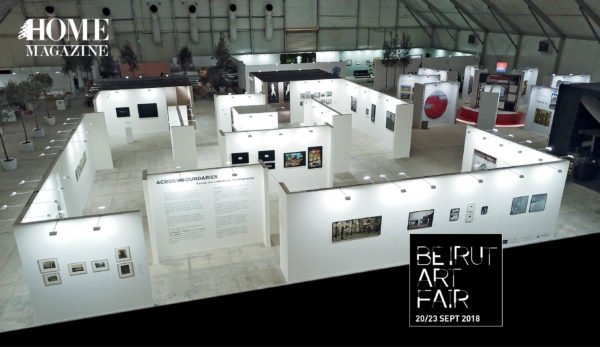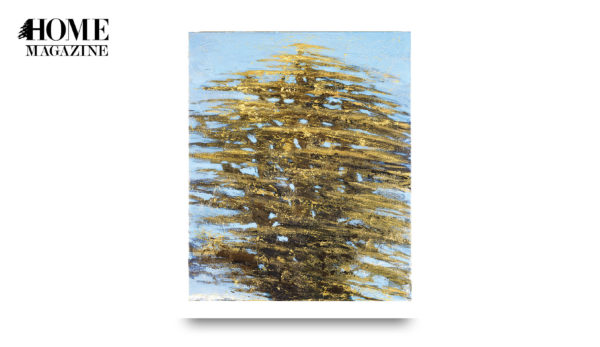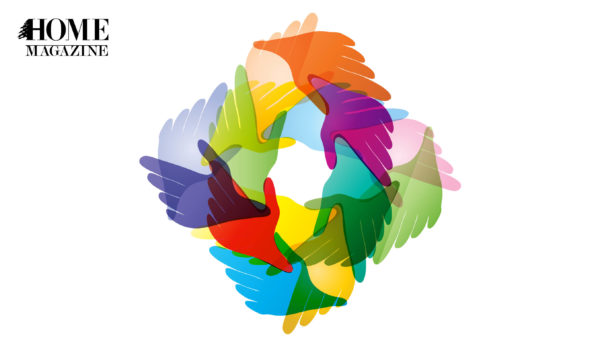Exclusive photoshoot for HOME Magazine by Zakaria Rakha
The iconic natural symbol of Lebanon is clearly the cedar, best reflected in its central position on the Lebanese flag. While other countries have cedars, none of their cedars have played such an important historical role as the Lebanese cedar nor been mentioned in such historical records as Gilgamesh and the Bible. The cedar has contributed to shaping Lebanese culture (that which is manmade), but is not itself a part of culture. In contrast to the cedar, there are many good reasons to propose the briq as the iconic cultural symbol of Lebanon, to put it on posters and postage stamps, and revive its common usage. Other Lebanese cultural symbols are the flag, the map of the country, the six columns of the Temple of Jupiter in Baalbek and the stylized calligraphy of the word لبنان (Lebanon). But none of those integrate Lebanon’s unique cultural heritage with tradition, health and sustainable practice as the briq does.
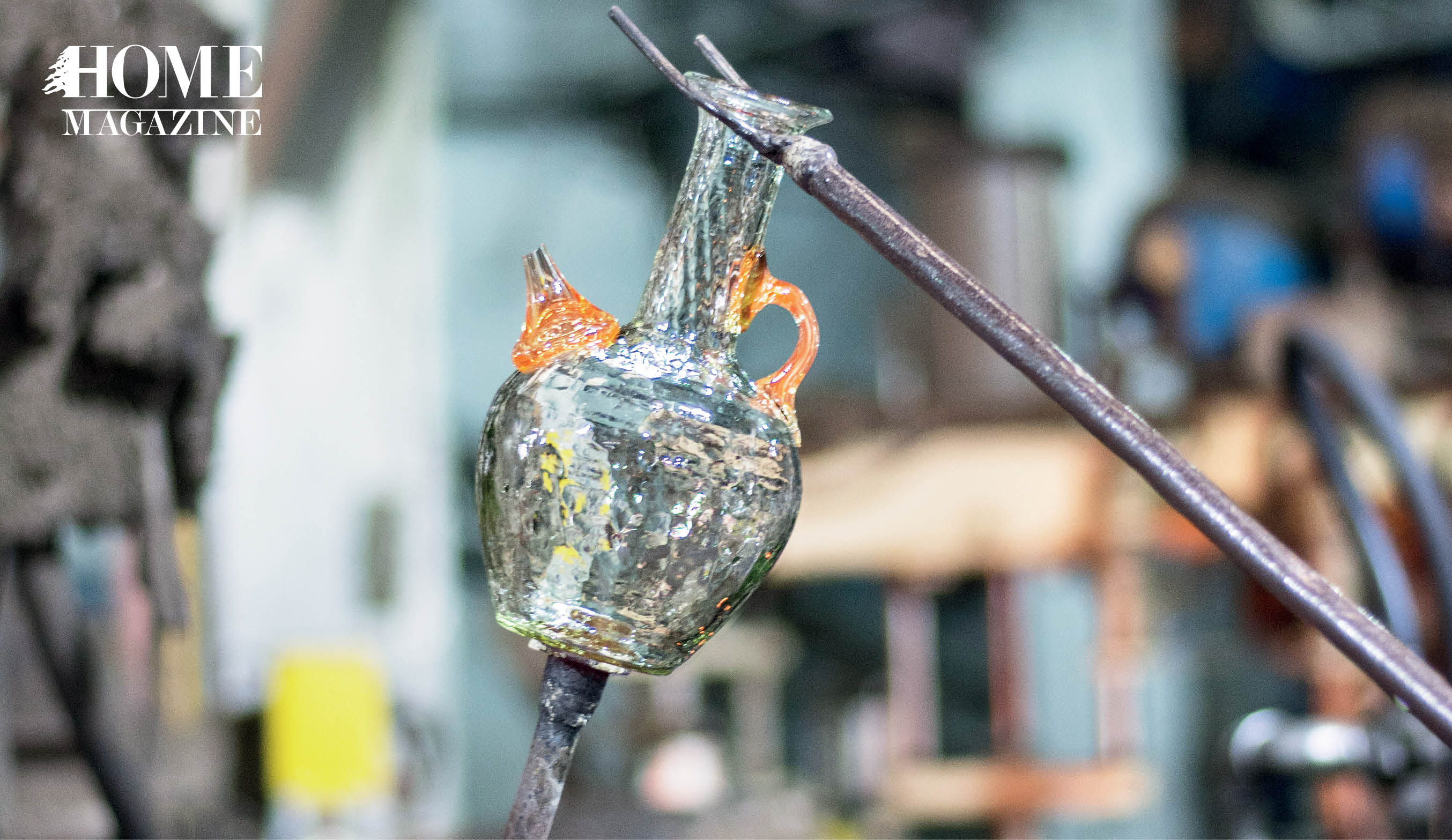
The briq ( بريق ), or ibriq ( ابريق ) in classical Arabic (also spelled brik) simply means a pitcher, jug or juglet in Arabic. But in Lebanon it is the name for a uniquely shaped water pitcher with a bulbous body and a straight or tapered neck, a loop near the wide opening at the top and a tapered spout facing upward directly opposite it. The loop can be used as a handle, but is more often used to put a stabilizing finger in when carrying the briq or lifting it to drink from. The spout is not generally used for pouring the contents into another container like most pitchers, but to constrict the water flow to a manageable amount for drinking.
(Note that in this article we will use briqs for the plural of briq, but in Arabic, the plural is actually ibariq (أباريق) ).
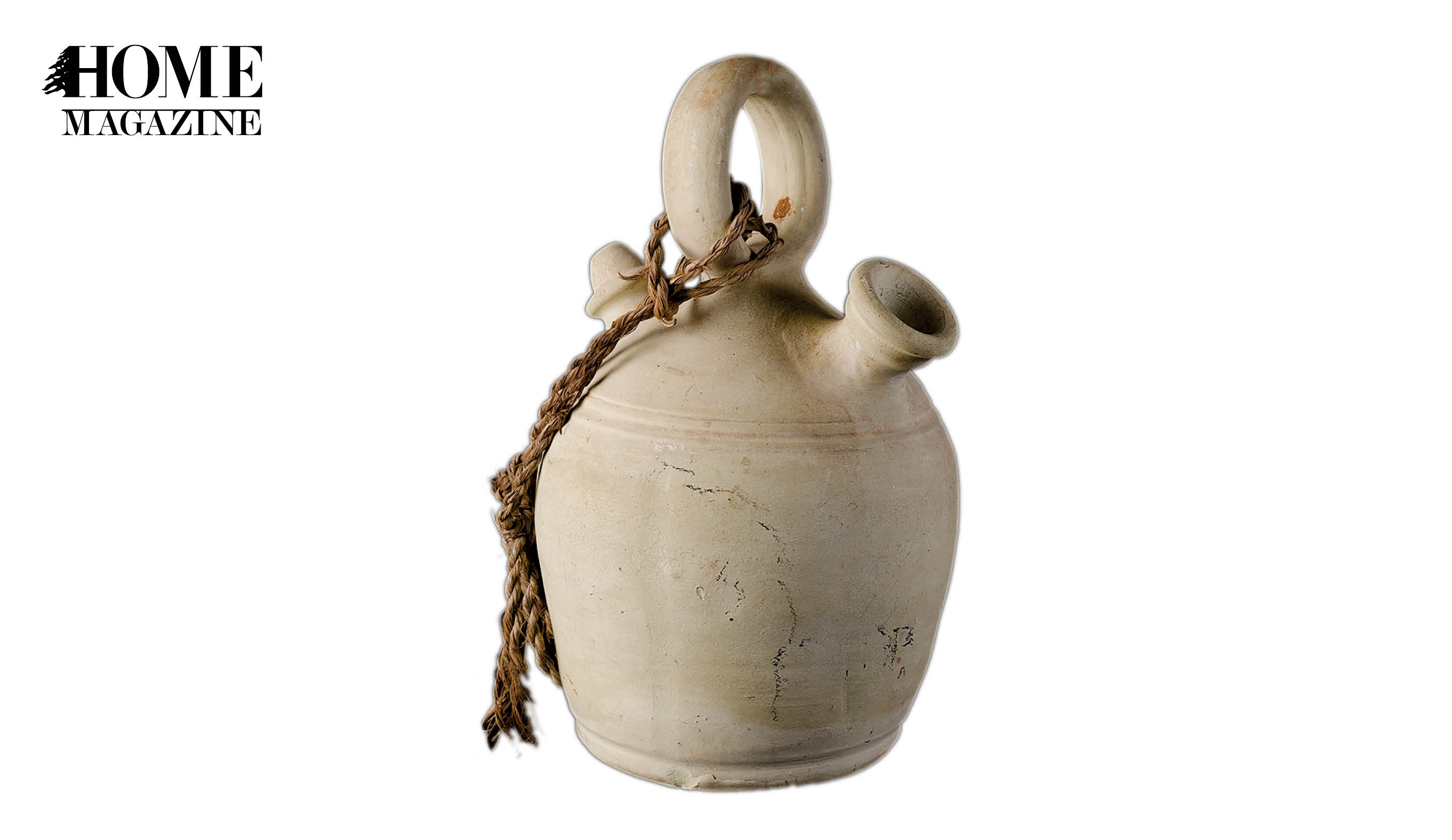
Uniquely Lebanese
In researching this article, much effort was made to determine if the briq used in Lebanon is also found in other cultures. I found no evidence that it is used in surrounding countries or beyond, except in Lebanese restaurants and souvenir shops. There is a jug that is similarly used for drinking in Spain and Hispanic cultures of Latin America called the botijo, but it is shaped differently.
There is also reference to something comparable in India called a ghara, matka or suhari but this, too, does not physically resemble the Lebanese briq.
Briq drinking etiquette
The briq is a social artifact in that it is meant to be shared. It is common for it to be passed from one person to another. In a more formal situation someone may present the briq to one person after the other, or it is left out on a table for anyone to drink from. The briq is always filled with water, not other beverages. Briq drinking etiquette requires that users not touch the spout with their mouths, instead holding the briq above the face and letting the water pour down into one’s open mouth. As with the Lebanese briq, botijo etiquette also demands that the lips not touch the spout, as the water container is usually shared among several people .

The clay briq
There are two types of briq, those made from clay and those made from glass. They are made very differently and have different properties. The clay (pottery/ earthenware/terracotta) briq is the older form. A book entitled The Phoenician Pottery of Cyprus by Patricia Bikai has an illustration of a briq dated from between 1050 to 850 B.C. The spout is a quarter turn from the handle so that one could hold it in one’s right hand to drink. It is from the Phoenician cultural heritage of Lebanon. A number of clay briqs are displayed at the American University of Beirut Museum. The museum case for the Early bronze period (circa 3500-2200 B.C.) has two artifacts that resemble the briq displayed with the spout, but no handle. There is no way of knowing if any of these historical briqs were used for drinking water as is now done in Lebanon.
The clay briq is made individually on a pottery wheel in two sections, with the lower part made separately from the upper part and then fused together.
https://www.youtube.com/watch?v=AZ4FlvGbrBI.
The whole process takes about 12 minutes, not including the time to fire it. While the briq used in most HOMEs is about a foot high (about 30 cm) there is a larger variation called an awafi that was traditionally used in the fields and orchards to hold a larger amount of water for the fieldworkers.
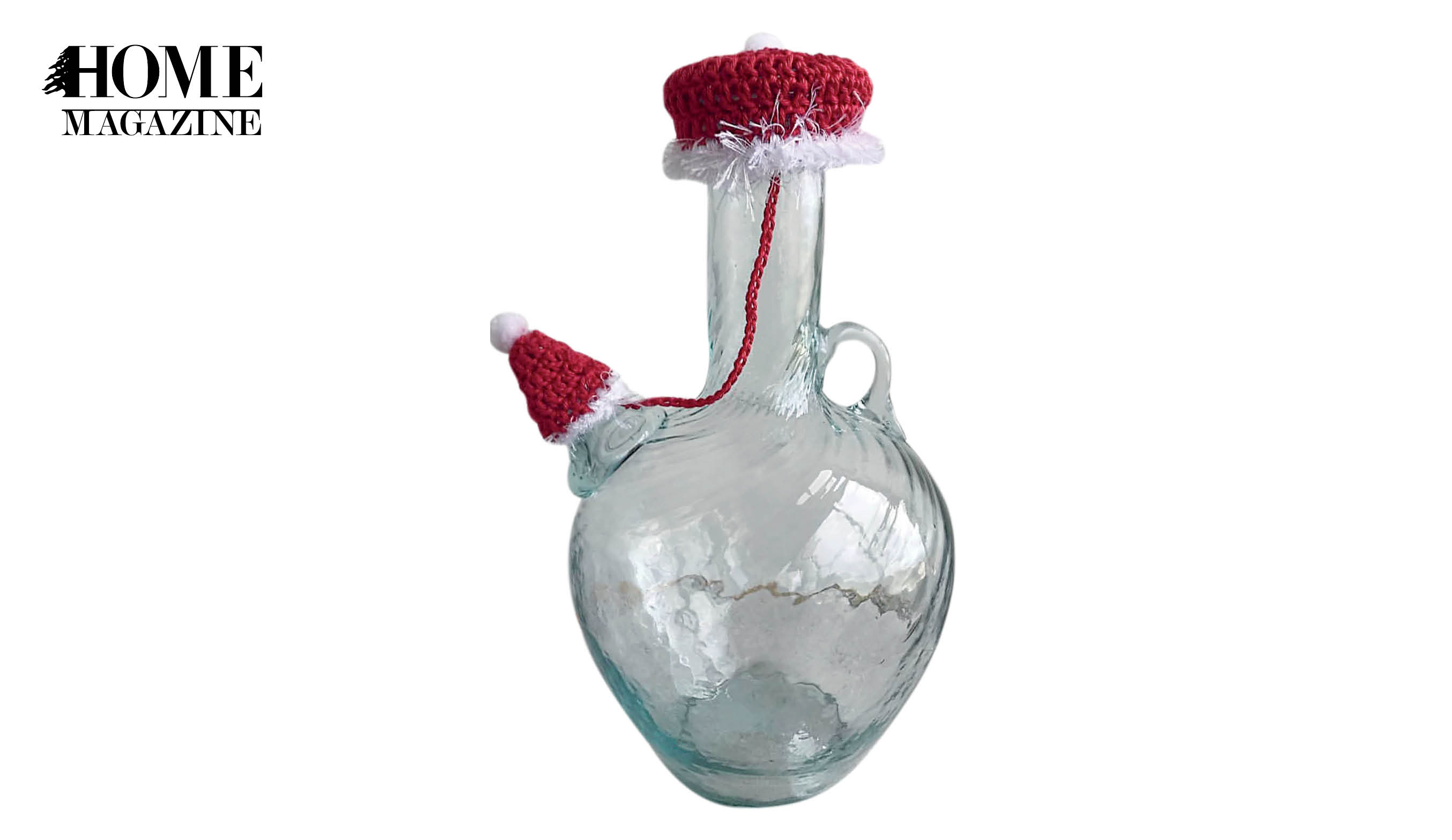 Chirine Koetter has made an art of crocheting briq covers, especially attracting tourists who want to take a briq back to where they now live in the Lebanese diaspora.
Chirine Koetter has made an art of crocheting briq covers, especially attracting tourists who want to take a briq back to where they now live in the Lebanese diaspora.
The glass briq
The glass briq is a more recent variation. Today the family-run business of Ali Khalife in Sarafand is one of the last artisanal glass blowing enterprises in Lebanon. The glassblowers of Sarafand turn recycled glass into vases, earrings, drinking glasses and other examples of the glassblower’s art, as well as the briq. Glassblowing was actually invented in the first century B.C. somewhere along the Syro-Palestinian coast, likely in what is now Lebanon. This method produces a briq that is uniquely crafted without the thin vertical lines on opposite sides of the briq that identify glass briqs made with a mold.
Most of the glass briqs in Lebanon are not made by artisanal glassblowers. In Tripoli, Golden Glass is one of the last companies to mass produce glass briqs. The company has a number of glassblowers who make the briqs on 30-minute rotations. The glassblower first takes a carefully measured blob of molten glass on a glass blowing rod, and places it into the middle of an open mold. He deftly closes the two halves of the mold with his feet and blows into the rod to have the molten glass take the shape of the briq. It only takes a few seconds to harden the glass enough to remove it from the mold, red hot, but cooled enough to retain its shape. After the briq is crafted with the spout and handle, the hot glass briq is transferred by a special fork-ended rod to a conveyor belt where it gradually cools, and then it is placed into a packing box at the other end. While the mold assures the standardization of the basic shape of the briq, the lip, handle and spout are only as consistent as the individual glassblower can make them. The whole process takes about two minutes for each briq to be made, and the output is about 200 briqs per day.
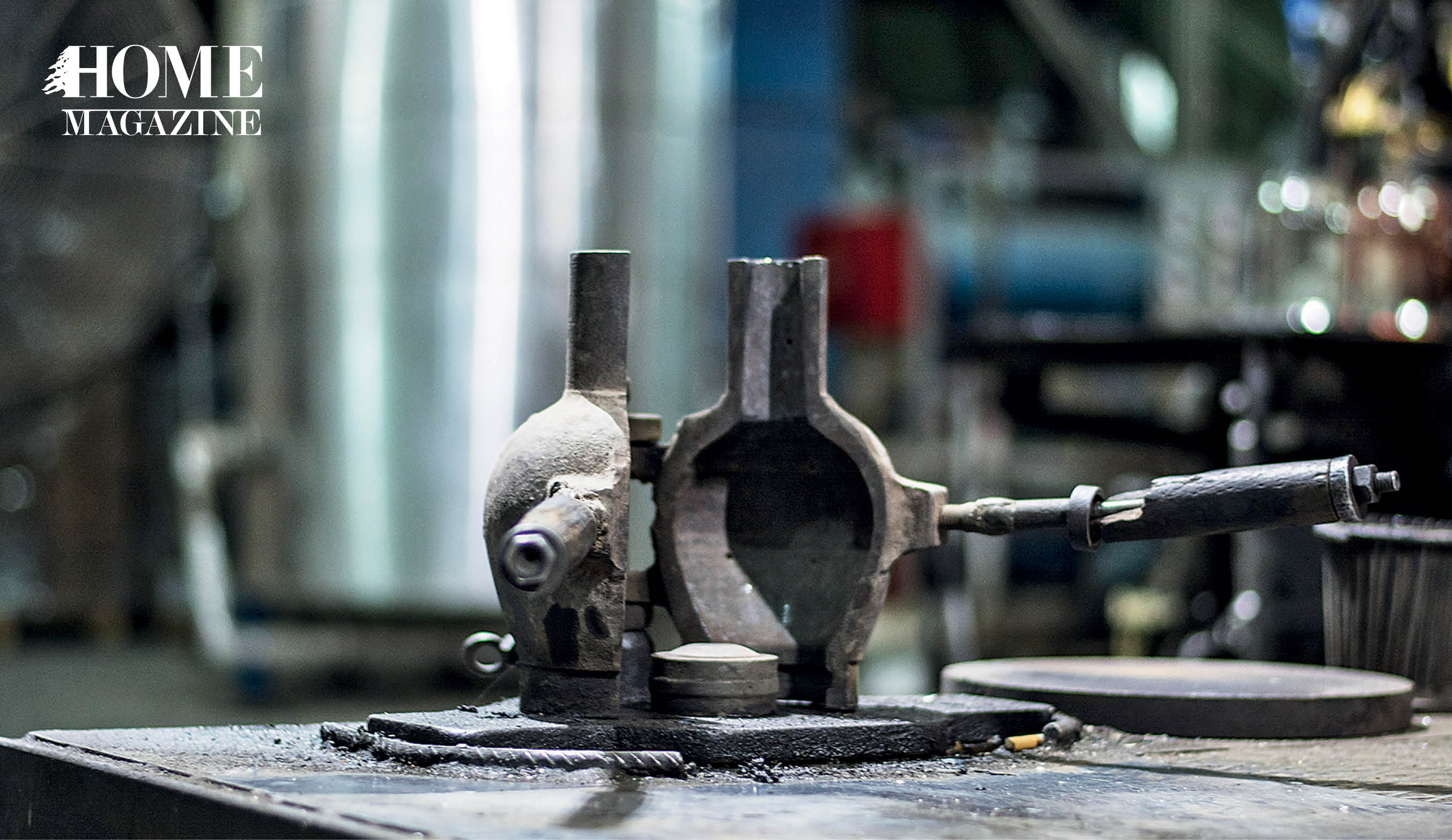
Health benefits of drinking from the briq
There are a number of health benefits that come from drinking water that has been stored in any container made of clay, whether a briq, a botijo, a matka or simply an earthenware pot. It is unglazed so that it cools the water by evaporation. Chilling the water from a clay pot rather than a refrigerator or hot/cold dispenser is easier on the throat. In addition, the clay itself can give the water important properties. Since the clay used to make pottery is alkaline in nature it helps to maintain the pH balance in our bodies, reducing acidity. It is also believed to provide nutrients and vitamins that can maintain the body glucose and prevent heat stroke. And both alkalinity and the minerals in the clay can help improve digestion. It also helps in keeping testosterone levels balanced. In contrast, most plastic bottles contain toxic chemicals like BPA, which is an endocrine disrupter and can lower testosterone levels. Some people also claim that clay water containers give the water electromagnetic energy.
While they couldn’t articulate why, a number of people interviewed for this article felt that drinking from a clay briq was “better” than a glass one, and one person noted that the water tasted better and was “smoother”, no doubt because of its mineral content.
The glass briq, in contrast, has fewer health benefits, since glass is essentially an inert material that adds no nutrients to the water and does not cool the water through evaporation. On the other hand, it has none of the negative effects of plastic water bottles since nothing is absorbed into the water from the glass.
Rana Khalil, a stretching instructor in Lebanon, encourages the students in her classes to drink from a briq, claiming that the actual process of drinking from the briq itself provides health benefits since it stretches the neck upwards, thus stretching the thyroid. She also notes that chugging the water (swallowing as one drinks) exercises the throat while it contributes to having the person drink more water.

Environmental benefits of drinking from the briq
There are a number of important environmental benefits to the briq. The clay briq is a cost-effective and eco-friendly solution to cooling water, which is particularly important where electricity is expensive or unreliable. And whether made from clay or glass, the briq avoids the need to use single-use plastic water bottles or cups that do not breakdown in the environment. And for those who drink from reusable glasses or cups, it avoids the need to wash them, saving water, time and energy.
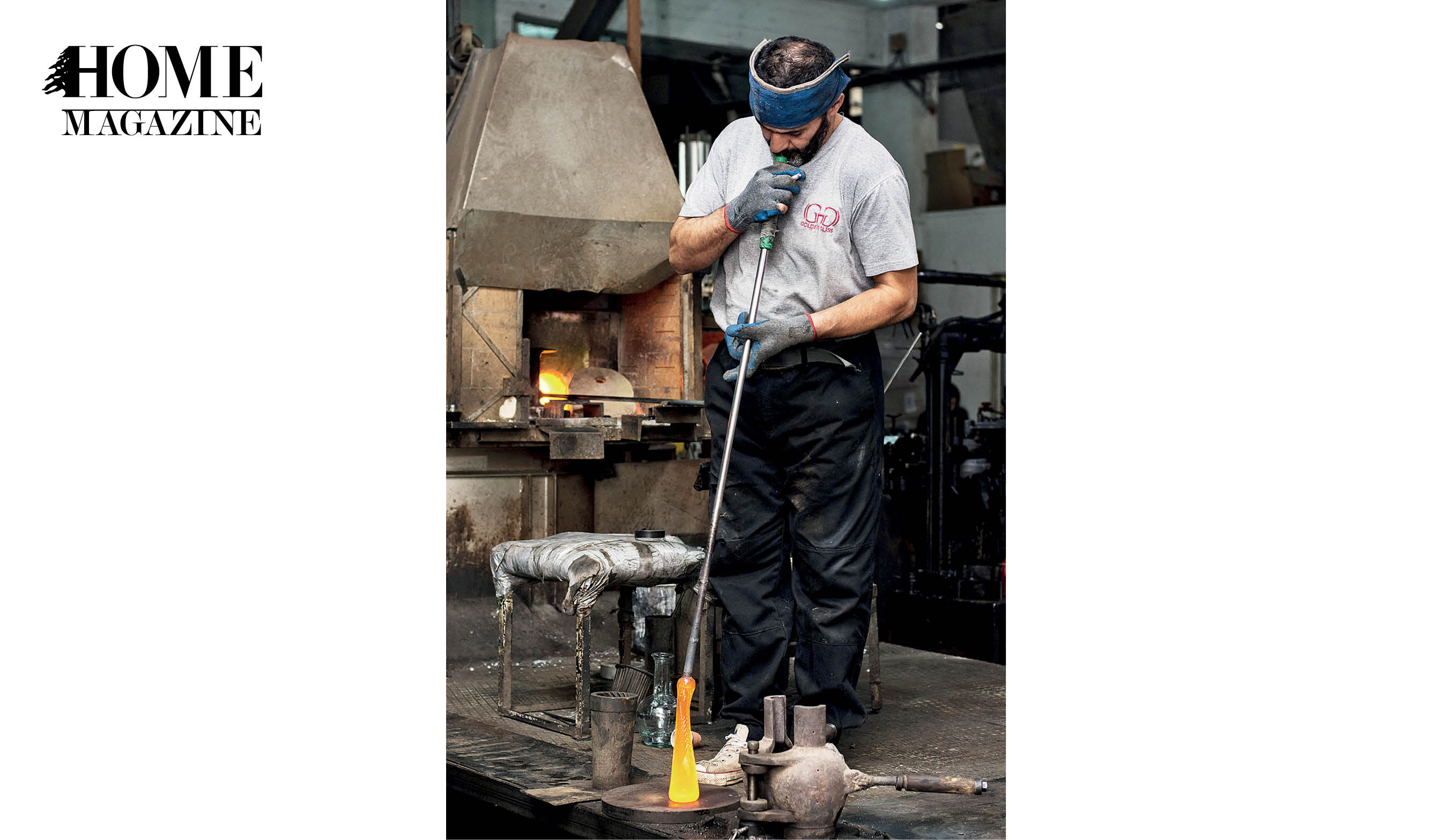
Reviving a cultural tradition: #BringingBackTheBriq
Drinking from the briq continues to be a common cultural practice in many of the rural villages of Lebanon. It is also seen on the tables of some traditional Lebanese restaurants, both in Lebanon and abroad. On November 14th, Volunteer for Lebanon launched the hashtag #BringingBackTheBriq as part of its campaign to promote sustainable service, the theme of its program of National Youth Service Week. Many of those interviewed about the briq fondly remember drinking from a briq as children at their grandparents’ HOME. They still keep a briq as a cultural artifact—displaying it on a shelf, or using it as a flower vase.
They recall learning how to drink from it as children, often spilling the water all over themselves, and sometimes competing with relatives and friends to see who could drink without touching the spout to their mouths, raising it highest above their heads and drinking the most water, swallowing as they drunk without spilling any of it. In fact, as people are challenged to drink, some laugh as they spill the water all over themselves, while others revive the competitive spirit that makes drinking from the briq a game as well as a way to promote drinking more water.
When asked why they don’t still use the briq at HOME, many responded that the practice stopped when people no longer trusted getting water from the tap. Somehow, they have the mistaken idea that the briq must be filled from a faucet, when it can just as easily be filled from a water dispenser that uses large refillable plastic bottles. Even better than that, one company, Talaya, delivers water in large glass bottles using their own special hot/ cold dispenser, avoiding all need for the water to touch plastic. They have joined the #BringingBackTheBriq campaign, giving a briq as their end-of-year corporate gifts and agreeing to begin giving a briq to those who buy their dispenser.
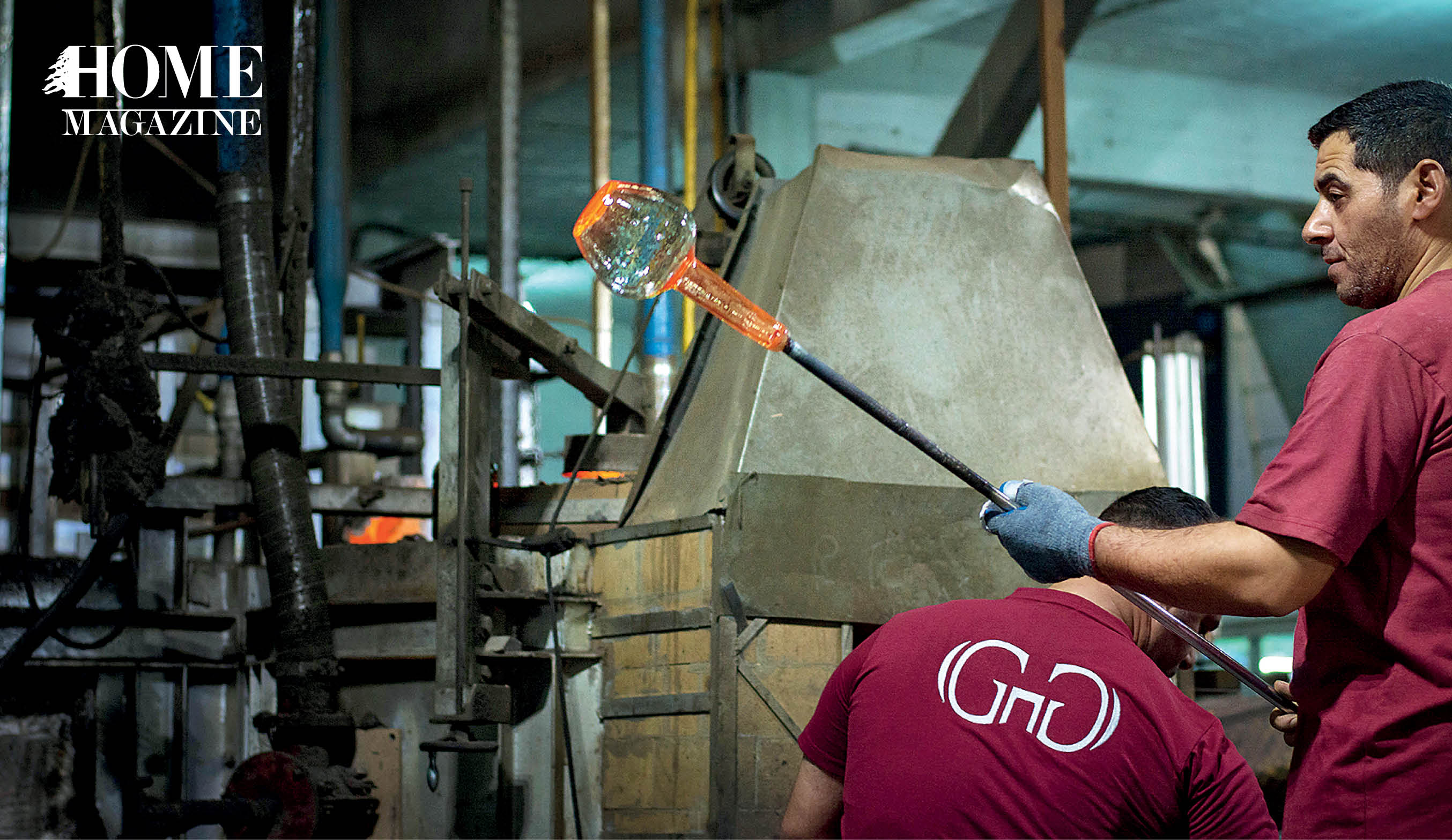
Promoting the briq as Lebanon’s iconic cultural tradition
Whether in clay or glass, drinking from the briq is a tradition that is both healthy and sustainable—inspiring art, whether in crafting the briq from clay or glass, painting on it, crocheting its covers, or painting and photographing the briq alone or people drinking from it. It also is a wonderful social tradition of sharing as the briq is passed from one person to another. For all these reasons, the briq deserves to be viewed as the iconic cultural symbol of Lebanon and its use revived and spread in Lebanon and beyond as people throughout the world seek to live a healthier and more sustainable lifestyle.















